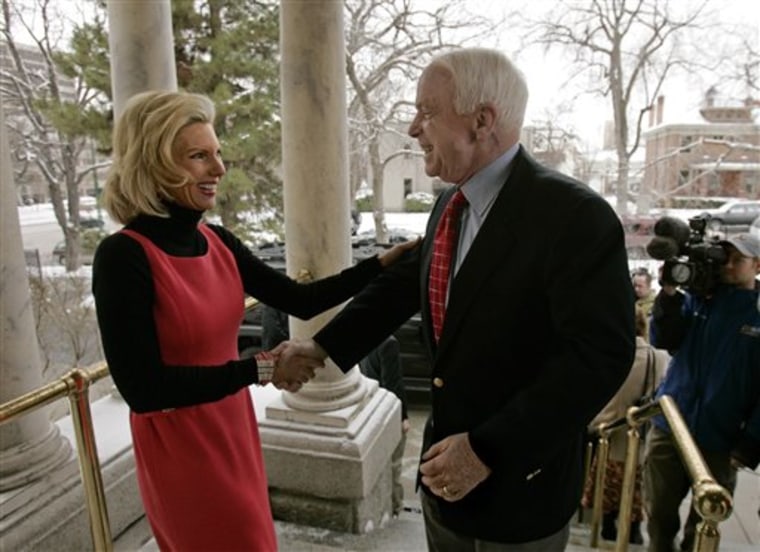Republican presidential candidate John McCain, a longtime advocate of limiting the influence of money in political campaigns, will opt out of the post-Watergate presidential public financing system unless the Democratic nominee agrees to campaign under the same financial restrictions, his campaign said Thursday.
The McCain camp's decision came after the Federal Election Commission eased some political fundraising rules in hopes of salvaging the tattered presidential financing system in the 2008 campaign.
By a 5-0 vote, the commission said presidential candidates may solicit private contributions for the general election now and still be eligible for public financing if they become their party's nominee.
A return of private funds required
The decision - a response to a request for advice from Democratic presidential candidate Barack Obama - would permit the two major party nominees to strike a deal and limit their campaigns to the public money available in a presidential campaign fund. In return, the candidates would have to return any private contributions they raised for the general election to their donors.
"The McCain campaign will now begin the process of accepting these general election funds, following the new FEC guidelines," McCain campaign manager Terry nelson said. "Should John McCain win the Republican nomination, we will agree to accept public financing in the general election if the Democratic nominee agrees to do the same."
Spending limits and public funds
FEC commissioners hailed their decision Thursday as one way to help preserve a public financing system that is in danger of becoming obsolete.
"We all know the public financing system rests on a very fragile base," said one commissioner, Hans A. von Spakovsky.
The FEC action comes as front-runners from both parties have decided to forgo public funds in primaries because acceptance of the money would require candidates to abide by spending limits. Several candidates also have said they will bypass public money in the general election, believing they could raise far more than the $85 million available for each party's nominee.
Such a development would be the first time a presidential election would operate entirely outside the public financing system created in the wake of the Watergate scandal more than 30 years ago. Campaign strategists and election money experts predict the two party nominees could end up spending $500 million each in the primary and general elections, far more than would be available if they simply took public financing.
In addition to Obama, Democrats Hillary Clinton and John Edwards have also said they will raise general election contributions now. The decision by McCain, however, was especially significant because he has been a champion of legislation to restrict the role of money in elections. The 2002 law that bans wealthy donors, unions and corporations from giving unlimited contributions to the national parties bears his name.
The FEC's ruling
Taxpayers contribute to the public finance system by selecting whether to direct $3 of their tax liability to the presidential fund in their tax returns. Legislation pending in Congress seeks to retain the public financing system by increasing the amount that taxpayers would set aside and by removing spending restrictions for primary candidates who accept the public money.
Obama's lawyers, in seeking the FEC's opinion, said he wanted to be able to raise private money for the general election while retaining the option of seeking a bipartisan agreement to only accept the public money.
The FEC on Thursday said he and the other candidates could do that provided they keep the general election money separate and return it to donors if they decide not to use it.
The question remains whether candidates would even consider such a spending armistice, especially if an accelerated primary schedule results in a lengthy and expensive general election campaign.
In their request to the FEC, Obama's lawyers said only that Obama would not "rule out" a publicly financed campaign and stressed that "both major parties' nominees" would have to agree to such a step.
On Thursday, Obama spokesman Bill Burton said: "If Senator Obama is the nominee, he will aggressively pursue an agreement with the Republican nominee to preserve a publicly financed general election."
The FEC's decision could have gone in another direction. At issue was a provision in campaign finance law that nominees are eligible for public financing if "no contributions have been or will be accepted by candidate or his or her authorized committee."
But commissioners said strict adherence to that provision would simply force candidates to forgo the public financing system entirely.
"It would be wrong for the agency to stand on a wooden interpretation of its regulations and of the statute while the public financing system crashes and burns," Commissioner Ellen Weintraub said.
